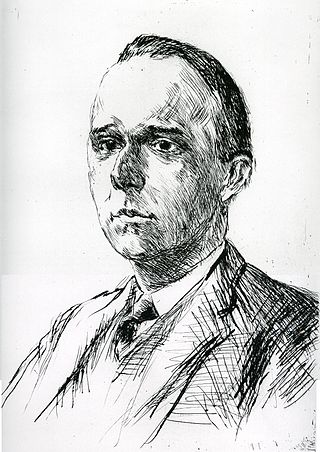
Werner Wilhelm Jaeger was a German-American classicist.

Georg Anton Friedrich Ast was a German philosopher and philologist.
Christian Martin Julius Frauenstädt was a German philosopher and editor. He was educated at the house of his uncle at Neisse, and converted from Judaism to protestant Christianity in 1833. He studied theology and, later, philosophy at Berlin, where he came under the sway of the philosophies of Hegel and Schelling. He worked as a private tutor for the Sayn-Wittgenstein family during this period.

Otfried Höffe is a German philosopher and professor.
Atticus was an ancient Platonic philosopher who lived in the second century of the Christian era, under the emperor Marcus Aurelius. His lifetime fell into the epoch of Middle Platonism, of which he was one of the most notable representatives.

Johannes Evangelist von Kuhn was a German Catholic theologian. With Franz Anton Staudenmaier he occupied the foremost rank among the speculative dogmatists of the Catholic Tübingen school.
Eckart Schütrumpf is a professor of classics at the University of Colorado at Boulder and former professor of Classics at the University of Cape Town. He is known for his work on political, ethical, rhetorical and poetic issues in Aristotle, Plato, Cicero, and other ancient writers. In 2005 he won a prestigious research prize from the Alexander von Humboldt Foundation for foreign scholars in the humanities. He is currently working on an edition of Aristotle's fragments.

Friedrich Bernhard Ferdinand Michelis was a German theologian and philosopher born in Münster.
Ingolf Ulrich Dalferth is a philosopher of religion and theologian. His work is regarded as being on the methodological borderlines between analytic philosophy, hermeneutics and phenomenology, and he is a recognized expert in issues of contemporary philosophy, philosophy of religion, and philosophy of orientation.

The Definitions is a dictionary of 184 philosophical terms sometimes included in the corpus of Plato's works. Plato is generally not regarded as the editor of all of Definitions. Some ancient scholars attributed Definitions to Speusippus.
Emerich Coreth was an Austrian Philosopher, Jesuit and Catholic Priest. He is well known for his works on metaphysics and philosophical anthropology. A close associate of Karl Rahner, Coreth is a renowned neo-Thomist of 20th century. He was the Rector of the University of Innsbruck and the Provincial of the Austrian Province of the Society of Jesus.

Andreas Urs Sommer is a German philosopher of Swiss origin. He specializes in the history of philosophy and its theory, ethics, philosophy of religion, and Skepticism. His historical studies center on the philosophy of Enlightenment and Nietzsche, but they also deal with Kant, Max Weber, Pierre Bayle, Jonathan Edwards, and others.
Otto Pöggeler was a German philosopher. He specialized in phenomenology and commenting on Heidegger. In 1963 he authored the acclaimed Martin Heidegger’s Path of Thinking, one of the first rigorous attempts at tracing the development of Heidegger's thought. He also published a study of poetry of Paul Celan, and was director of the Hegel-Archiv at the Ruhr University in Bochum.
Harald Holz is a German philosopher, logician, mathematician (autodidact), poet and novelist.
Manuel Andreas Knoll is a contemporary German scholar and Professor of Political Theory and Philosophy. After three full professorship awards in Istanbul (2011-2023), in January 2024 he moved back to Munich University (LMU) where he is a Privatdozent.
Wolfgang Feneberg was a German Roman Catholic, later an Evangelical Lutheran theologian of the New Testament, ex-Jesuit and Parson of the Evangelical Lutheran Church in Bavaria and Professor. Feneberg was the founder of the "Bibelschule in Israel".
Plato's so-called unwritten doctrines are metaphysical theories ascribed to him by his students and other ancient philosophers but not clearly formulated in his writings. In recent research, they are sometimes known as Plato's 'principle theory' because they involve two fundamental principles from which the rest of the system derives. Plato is thought to have orally expounded these doctrines to Aristotle and the other students in the Academy and they were afterwards transmitted to later generations.
Klaus Döring is a German classical philologist and philosophical historian.
Imre Tóth, born in 1921, was a philosopher, mathematician and science historian, who specialized in the philosophy of mathematics. He worked on non-Euclidean geometry, mathematical irrationality, freedom, Plato and Platonism, Aristotle, Spinoza, Kant, and Hegel. He was born in Satu Mare, the year after the Treaty of Trianon recognized it as a part of Romania, to a very religious Jewish family that had fled from the 1920 pogroms. Resisting with the Communists during the Second World War and then excluded from the Party, he narrowly escaped death in the camps. After the war he studied at Babeș-Bolyai University. He died on May 11, 2010, in Paris.
Maria Elisabeth Gössmann née Placke was a German Roman Catholic theologian and prominent representative of feminist theology within the Roman Catholic Church. She saw herself as a representative of "historical women's studies in theology".







